BUSINESS DAY TV: We will never know how rigorous the public protector’s report was
POLITICAL analyst Sipho Seepe discusses President Jacob Zuma’s decision to pay back some of money for nonsecurity Nkandla upgrades and whether this is a pre-election ploy or a bid to stay out of the country’s courts
BUSINESS DAY TV: President Zuma has proposed a permanent end to the Nkandla case or in his words, “the drawn out legal controversy regarding the public protector’s March 2014 report on Nkandla”. He proposes a simple course to implement what the public protector recommended as remedial action ahead of a Constitutional Court hearing on the matter next Tuesday and of course ahead of his state of the nation address on Thursday. So is this a genuine desire to do right or a nimble and expedient step ahead of key local elections this year? Joining us now is political analyst Sipho Seepe.
Sipho...we’ve seen some comments today that say that this action takes us back to square one, what do you make of it?
SIPHO SEEPE: Well, for the last two years the concern was whether the President would pay back the money, because the public protector was very clear that in as much as the President may not have asked for certain upgrades, he is going to be benefitting, he has unduly benefited, and the public protector suggested that the National Treasury in conjunction with SAPS (South African Police Service) should assist in finding what would be a reasonable cost for him to pay. And the President has admitted that he did not ask for this, but the opposition had argued that he was actually not complying. So we had a long drawn out battle in Parliament...political discourse has been around this matter. Now the President says, I’m willing to pay.
But also what the President has actually done is to add a bit of variation in terms of the order or the recommendation by the protector to say, instead of it being a SAPS and National Treasury I’ve asked that the auditor-general should come in. And of course the opposition parties should have been happy with the President saying, “I’m willing to pay because that is what the noise has been about, pay back the money”.
But because this has been a milking cow and a thing that has been almost...somebody said it’s like an oxygen that has driven the opposition parties. They actually feel like they are, almost like taking the wind from the sails and they are very upset about it. And they are now coming up with some neat footing...for instance some are saying, “but the public protector did not say, bring the auditor-general”.
But we know that the auditor-general would have been probably an office that would assist, because you’re dealing with audited public expenditure. And they’d be able to tell where there’s been diversion, where there’s been unauthorised expenditure, where there has been looting and all that. But that is now what they want to argue because they want this matter to continue. So the President might actually say, well in light of this let me just stick with what the public protector said, and SAPS as well as National Treasury, then they’ll have nothing to say.
BDTV: Which brings us to the question which is, has this process been transparent enough in the first place from the release of the report to the remedial action that has or has not been taken for that matter?
SS: What has been unfortunate with this process is that we have never had an opportunity where the report itself has been interrogated. Instead what we had was more of a political response by the ANC (African National Congress). Remember the report was produced and made public just before the 2014 elections and the ANC, instead of looking at the report, simply said, “this public protector is anti-ANC, anti the President.”
So whether it’s sufficiently rigorous is something that we would never know. But what is most important is that at least we know that our democracy works and the opposition parties should actually take credit for having put enough pressure, especially the EFF (Economic Freedom Fighters) for choosing the route of using the Constitutional Court to say, we are going to go there to protect the public protector. And now the President and the ANC, are saying we agree that the money should be paid.
BDTV: So now does this mean...what position does this put the public protector in? Does it mean that we will still have a Constitutional Court hearing and that the powers of Chapter 9 Institutions such as hers, will be, I suppose, firmly set out on the table or is that opportunity now no longer with us?
SS: With this case, which is before the courts now, if the case gets settled, if the President who was challenging whether the remedial actions are simply recommendations, that matter is no longer on the table because the President is not saying I’m challenging it, he simply says I’m willing to abide by it. So there might possibly be another case where this matter can be dealt with. But as we stand, it will be very difficult for the Constitutional Court to entertain something that is not challenged, because it is not a matter of dispute. It would have been a matter of dispute if the President said I’m not willing to pay.
BDTV: In the run-up to all of this, we had an interministerial committee publishing its own report actually absolving President Zuma from any repayment, does his back-stepping now not cast a huge shadow over the Cabinet’s credibility?
SS: If I was the opposition I would actually say that but what the President is simply saying, or probably what the ANC is also saying, is that what is the political cost? Because it’s been heavy. If you continue wanting to fight it, you can handle all those things. He could actually be saying, because we felt that we wanted to bring this to a close, there are far bigger issues that we should be addressing — the issue of the economy, the issues of poverty, and unemployment...we’ve decided to say we’d rather park this one.
It’s almost like choosing the battles that are worth fighting...and these are politicians so it is not expedient for the ANC to continue fighting. So it is better to close it. But at the same time they can try to find the mileage to simply say, we have a president who listens.
BDTV: Okay so that mileage now talking about expediency, into whose hands does this play in the run up to elections this year?
SS: Actually if you are the opposition, especially the EFF, you could actually say “yes, we pushed it and we won”. And at the same time the ANC could say “you know, when there’s pressure, when people speak we listen”. So for me it is simply that anyone could actually take mileage out of this but what you also see is that some people will never be satisfied, and it might even boomerang. If you are going to insist on a long court process when the President says I’m willing to fight, people say but what is your problem? So your problem is not only about the money, it is the man.
So it can be very dangerous even for the opposition to continue once somebody says let’s deal with this matter. And South Africans are also tired of it and all they want is that the President must own up and pay. And he says I’m willing to pay.
BDTV: What this certainly does is set the stage up for an interesting state of the nation address next week. What are your expectations on that front?
SS: Well, effectively some opposition parties would have wanted to have milked the Nkandla cow but if it’s dead then it becomes terrible. Maybe it also allows the ANC, the President, to say now let’s deal with the issues that affect our people, not the issues that affect me because for the last two years, we’ve not had much discussion about policy from the political parties. Even the ANC has failed to put across what should be on the table because they’ve been dealing with firefighting.
BDTV: Well it’s going to be interesting...
POLITICAL analyst Sipho Seepe discusses President Jacob Zuma’s decision to pay back some of money for nonsecurity Nkandla upgrades and whether this is a pre-election ploy or a bid to stay out of the country’s courts
BUSINESS DAY TV: President Zuma has proposed a permanent end to the Nkandla case or in his words, “the drawn out legal controversy regarding the public protector’s March 2014 report on Nkandla”. He proposes a simple course to implement what the public protector recommended as remedial action ahead of a Constitutional Court hearing on the matter next Tuesday and of course ahead of his state of the nation address on Thursday. So is this a genuine desire to do right or a nimble and expedient step ahead of key local elections this year? Joining us now is political analyst Sipho Seepe.
Sipho...we’ve seen some comments today that say that this action takes us back to square one, what do you make of it?
SIPHO SEEPE: Well, for the last two years the concern was whether the President would pay back the money, because the public protector was very clear that in as much as the President may not have asked for certain upgrades, he is going to be benefitting, he has unduly benefited, and the public protector suggested that the National Treasury in conjunction with SAPS (South African Police Service) should assist in finding what would be a reasonable cost for him to pay. And the President has admitted that he did not ask for this, but the opposition had argued that he was actually not complying. So we had a long drawn out battle in Parliament...political discourse has been around this matter. Now the President says, I’m willing to pay.
But also what the President has actually done is to add a bit of variation in terms of the order or the recommendation by the protector to say, instead of it being a SAPS and National Treasury I’ve asked that the auditor-general should come in. And of course the opposition parties should have been happy with the President saying, “I’m willing to pay because that is what the noise has been about, pay back the money”.
But because this has been a milking cow and a thing that has been almost...somebody said it’s like an oxygen that has driven the opposition parties. They actually feel like they are, almost like taking the wind from the sails and they are very upset about it. And they are now coming up with some neat footing...for instance some are saying, “but the public protector did not say, bring the auditor-general”.
But we know that the auditor-general would have been probably an office that would assist, because you’re dealing with audited public expenditure. And they’d be able to tell where there’s been diversion, where there’s been unauthorised expenditure, where there has been looting and all that. But that is now what they want to argue because they want this matter to continue. So the President might actually say, well in light of this let me just stick with what the public protector said, and SAPS as well as National Treasury, then they’ll have nothing to say.
BDTV: Which brings us to the question which is, has this process been transparent enough in the first place from the release of the report to the remedial action that has or has not been taken for that matter?
SS: What has been unfortunate with this process is that we have never had an opportunity where the report itself has been interrogated. Instead what we had was more of a political response by the ANC (African National Congress). Remember the report was produced and made public just before the 2014 elections and the ANC, instead of looking at the report, simply said, “this public protector is anti-ANC, anti the President.”
So whether it’s sufficiently rigorous is something that we would never know. But what is most important is that at least we know that our democracy works and the opposition parties should actually take credit for having put enough pressure, especially the EFF (Economic Freedom Fighters) for choosing the route of using the Constitutional Court to say, we are going to go there to protect the public protector. And now the President and the ANC, are saying we agree that the money should be paid.
BDTV: So now does this mean...what position does this put the public protector in? Does it mean that we will still have a Constitutional Court hearing and that the powers of Chapter 9 Institutions such as hers, will be, I suppose, firmly set out on the table or is that opportunity now no longer with us?
SS: With this case, which is before the courts now, if the case gets settled, if the President who was challenging whether the remedial actions are simply recommendations, that matter is no longer on the table because the President is not saying I’m challenging it, he simply says I’m willing to abide by it. So there might possibly be another case where this matter can be dealt with. But as we stand, it will be very difficult for the Constitutional Court to entertain something that is not challenged, because it is not a matter of dispute. It would have been a matter of dispute if the President said I’m not willing to pay.
BDTV: In the run-up to all of this, we had an interministerial committee publishing its own report actually absolving President Zuma from any repayment, does his back-stepping now not cast a huge shadow over the Cabinet’s credibility?
SS: If I was the opposition I would actually say that but what the President is simply saying, or probably what the ANC is also saying, is that what is the political cost? Because it’s been heavy. If you continue wanting to fight it, you can handle all those things. He could actually be saying, because we felt that we wanted to bring this to a close, there are far bigger issues that we should be addressing — the issue of the economy, the issues of poverty, and unemployment...we’ve decided to say we’d rather park this one.
It’s almost like choosing the battles that are worth fighting...and these are politicians so it is not expedient for the ANC to continue fighting. So it is better to close it. But at the same time they can try to find the mileage to simply say, we have a president who listens.
BDTV: Okay so that mileage now talking about expediency, into whose hands does this play in the run up to elections this year?
SS: Actually if you are the opposition, especially the EFF, you could actually say “yes, we pushed it and we won”. And at the same time the ANC could say “you know, when there’s pressure, when people speak we listen”. So for me it is simply that anyone could actually take mileage out of this but what you also see is that some people will never be satisfied, and it might even boomerang. If you are going to insist on a long court process when the President says I’m willing to fight, people say but what is your problem? So your problem is not only about the money, it is the man.
So it can be very dangerous even for the opposition to continue once somebody says let’s deal with this matter. And South Africans are also tired of it and all they want is that the President must own up and pay. And he says I’m willing to pay.
BDTV: What this certainly does is set the stage up for an interesting state of the nation address next week. What are your expectations on that front?
SS: Well, effectively some opposition parties would have wanted to have milked the Nkandla cow but if it’s dead then it becomes terrible. Maybe it also allows the ANC, the President, to say now let’s deal with the issues that affect our people, not the issues that affect me because for the last two years, we’ve not had much discussion about policy from the political parties. Even the ANC has failed to put across what should be on the table because they’ve been dealing with firefighting.
BDTV: Well it’s going to be interesting...
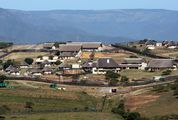
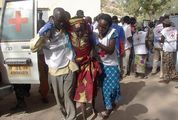
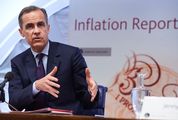
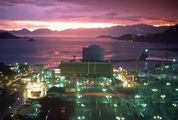


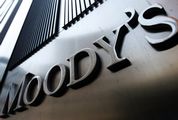
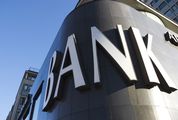
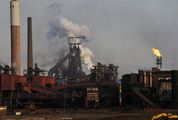

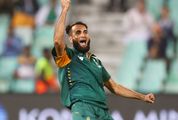









Login OR Join up TO COMMENT